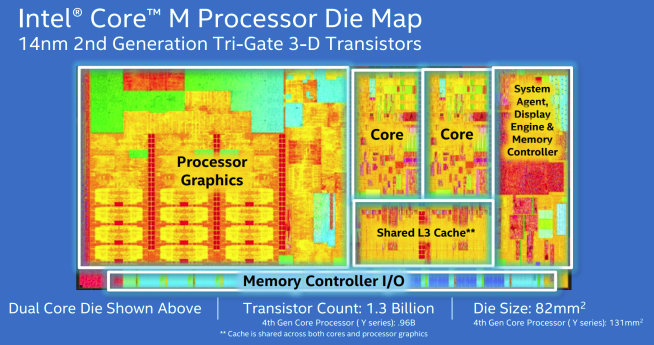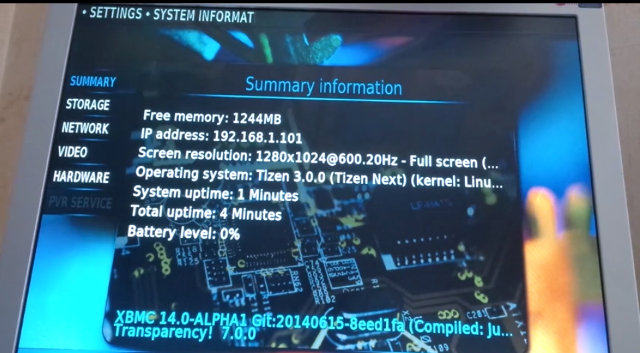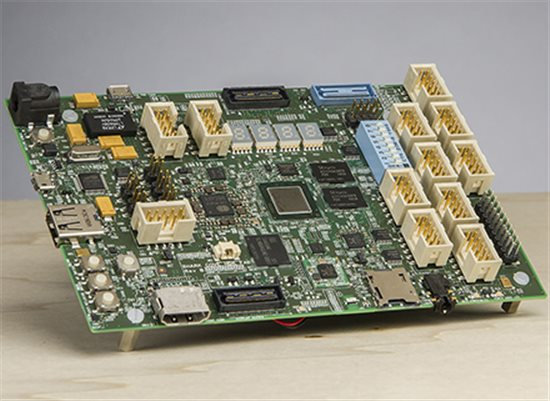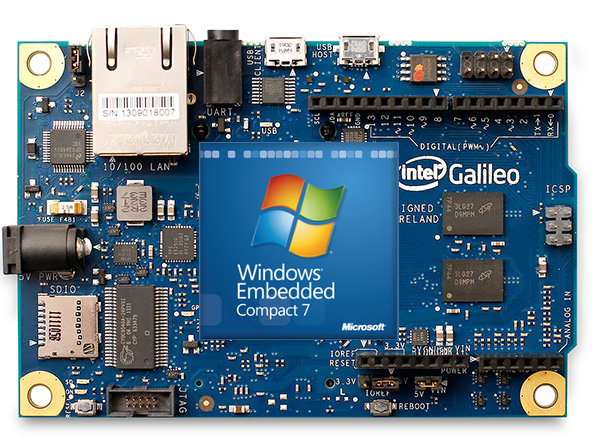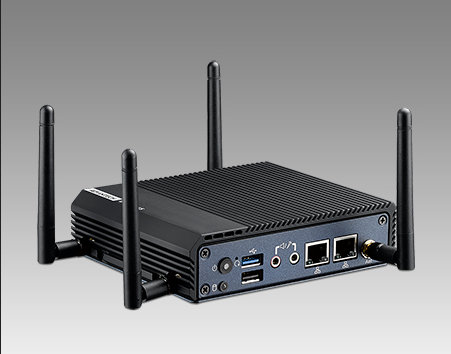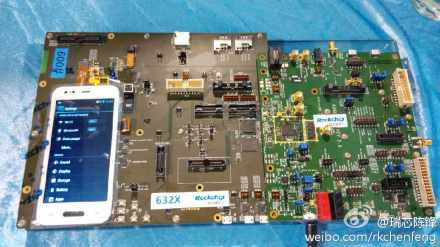ARM still have an edge in terms of power efficiency, but Intel has historically had an edge when it comes to process technology, and the company has announced their first 14-nm processors with three Broadwell Core M SoCs. The new process will also help with power efficiency, as all processors have 4.5W TDP, and Intel claims a Core M laptop will deliver twice the compute performance, and seven times more graphics processing power compared to a 2010 laptop powered by a 18W Core i5 processor, while doubling the battery life. Compared to more recent 4th generation Intel Core “Haswell” CPU, the new chips are said to offer up to 50 percent faster CPU performance and 40 percent graphics on a performance-per-watt basis. The company reveals three Core-M processors: 5Y70, 5Y10, and 5Y10a, all dual core / quad thread processor with base frequencies between 800 and 1,100 MHz, and turbo frequencies between […]
Embedded Linux Conference Europe 2014 Schedule – IoT, ARM vs x86, Optimization, Power Management, Debugging…
The Embedded Linux Conference Europe (ELC 2014), CloudOpen, and LinuxCon Europe will jointly take place at the Congress Centre Düsseldorf, in Germany on October 13 – 15, 2014. The 3-day events will consists of keynotes, presentations, and tutorials. Each day will open with two or three keynotes by speakers including Jim Zemlin (Executive Director, Linux Foundation), and Jono Bacon (XPRIZE), followed by presentation and tutorials. There will be 45 presentations for ELCE, 58 for LinuxCon, and 47 for CloudOpen, I’ll make a virtual schedule with a few sessions part of the Embedded Linux Conference Europe “track”. Monday, October 13 11:15 – 12:05 – Performance Analysis Using the Perf Suite by Mans Rullgar, Consultant When faced with a performance problem, the initial steps towards a solution include identifying the sections of code responsible and the precise reasons they are time-consuming. To this end, the ‘perf’ profiling tools provide valuable insight into the […]
XBMC / Kodi 14 Ported to Tizen 3.0 Wayland
XBMC, soon to become Kodi with version 14, is now supported in Linux, Windows, Mac OS X, Android, and iOS. But Kodi 14 may soon support Tizen, as Phil C., a Tizen developer, ported the alpha version of Kodi 14 to Tizen 3.0, and showcased it on an Intel “Bay Trail” NUC powered by Intel Atom E3815 single core processor. Intel 3815 NUC is officially supported by Tizen and an image is available for download, so most of the work was to build Kodi 14 Alpha, install required packages, and configure some scripts. The video below shows XBMC/Kodi 14 UI running on Tizen 3.0, and a video played from YouTube, and after about 3 minutes, he explains how to modify the BIOS to have the system boot and work properly for the rest of the video. If you happen to own an Intel E3815 NUC, but it could also work […]
Sharks Cove Intel Atom Bay Trail-T Development Board for Windows and Android is Now Available for $299
When Intel announced their Sharks Cove development board, they did not provide that much information, except for the fact that it aimed at Windows development, it would be easy to buy for hobbyist, and provided a picture of the board. The board has now been launched, is available for pre-order for $299, and technical details have been published. Intel Sharks Cove specifications: Soc – Intel ATOM Processor Z3735G, 2M Cache, 4 Core, @ 1.33GHz (Burst frequency: 1.88GHz) with Intel HD Graphics System Memory – 1GB 1×32 DDR3L-RS-1333 Storage – 16GB EMMC 4.5, micro SD Card slot, 2MP SPI NOR Video Output / Display – HDMI connector and MIPI Display Connector Audio – Realtek ALC5640 audio codec, 3.5mm stereo headphone jack, header for speaker, and on-board digital mic Connectivity – None. But Ethernet or WiFi can be added through USB. USB – 1x USB 2.0 type A connector, 1x micro USB […]
Intel Announces Galileo Gen 2 Development Board Based on Quark SoC
As many of us are waiting for our Intel Galileo board promised by Microsoft, and right after the Raspberry Pi foundation announced the Raspberry Pi Model B+, Intel has introduced a new version of the Galileo board which they simply call Galileo Gen 2. The development board is still powered by Intel Quark single core SoC (Pentium class) and with the same key features as the original Galileo Board, but with some tweaks based on the feedback from the community. Intel Galileo Gen 2 specifications (Changes in Bold): SoC- Intel Quark SoC X1000 single core, single-thread application processor @ 400 MHz, with 12KB embedded SRAM System Memory – 256MB DDR3, 5 Storage – 8MB NOR fklash, 8KB EEPROM, and micro SD card slot (up to 32GB) Connectivity – 10/100M Ethernet USB – 1x USB 2.0 host port, 1x micro USB 2.0 device port used for programming Debugging / Programming 10-pin […]
Microsoft is Giving Away Intel Galileo Arduino Compatible Boards to Developers
Microsoft has already launched several initiatives to reach the maker movement and app developers with .NET Gadgeteer supported by platform like Bambino 200, as well as Intel Shark Cove development board for Windows development. The company has now launched a website called windowsondevices.com where they currently have a signup page for developers to send a kit based on Intel Galileo, an Arduino compatible board powered by Intel Quark processor. There’s currently very little information on the software and documentation part of the development kit, but there are links to Visual Studio Express, Windows Embedded’s Internet of Things page, and a link to Maker Faire, so it gives what the kit will be for. Apparently they’ll send the kit to selected candidate whether “you are an experienced Windows developer looking to jump into the Internet of Things or you are new to Windows development and want to build the next big […]
Advantech UTX-3115 Rugged Fanless Computer Powered by Intel Atom E3826 SoC Supports Intel Intelligent Systems Framework
Advantech UTX-3115 is a rugged low power fanless computer powered by Intel Atom “Bay Trail-I” E3826 dual core processor and lots of various ports that can be used as a digital signage, for machine or factory automation, & “smart IoT gateway”, and that happens to be supported by Intel’s Intelligent Systems Framework (ISF). Before checking out Intel ISF, let’s go Advantech UTX-3115 hardware specifications: SoC – Intel Atom E3826 dual core processor @ 1.46 GHz with 1MB L2 cache and Intel HD graphics. System Memory – 2 x 204-pin SO-DIMM DDR3 1333/1066MHz, up to 16GB Storage – 2.5″ bay for HDD or SSD storage Video Output 1x HDMI up to 1080p60 1x micro HDMI up to 1080p60 1x VGA up to 2560 x 1600 @ 60Hz Dual channel LVDS up to 1920 x 1200 @ 60Hz (shared with micro HDMI) Connectivity – Dual Gigabit LAN (LAN1: Intel I210AT, LAN2: Realtek […]
Development Board with Intel Technology Developed by Rockchip
Just a quick post to show an interesting, yet unavailable development board. A few weeks ago, Intel and Rockchip announced a collaboration to design Intel Atom Sofia x86 SoC for mobile devices. Apparently, they did not waste any time, and have already done some nice work together, as Chen Feng, VP at Rockchip, posted the picture of the development board on his weibo account with a short description that Google’s translate as: You can now showed up, Intel inside, the world’s most highly integrated 6321 smartphones and tablet communications solutions, dual-core WCDMA SOC, integrated WIFI BT GPS PMU, all two chips It’s not entirely clear if it’s directly related to the announced Intel Atom “Sofia” using 3G (WCDMA) however. The 6321 is a dual core processor, but Rockchip and Intel only announced working on quad core processors, so this may be a separate product for example an ARM SoC with […]


